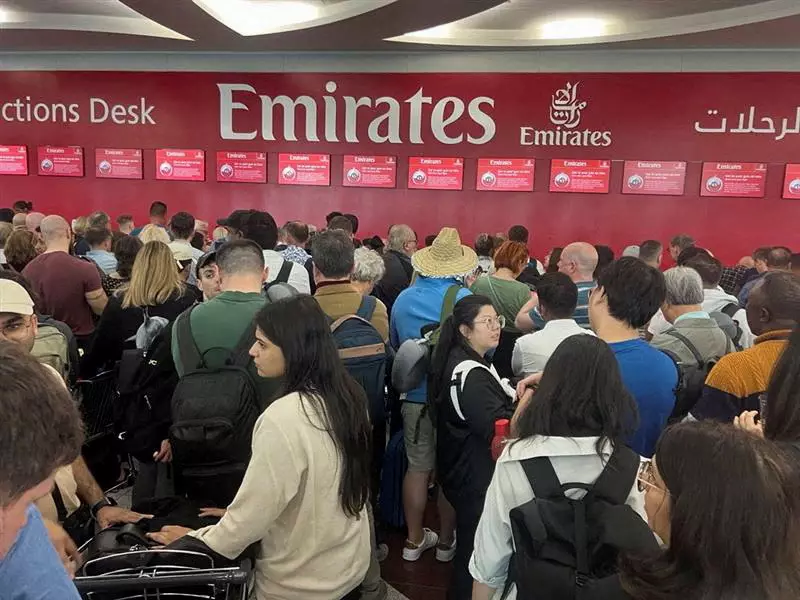The recent heavy rains in the United Arab Emirates caused severe flooding, disrupting operations for Emirates and flydubai. With nearly 400 flights cancelled and many more delayed, the airlines faced significant challenges due to the record storm that hit Dubai. This had a cascading effect on the airports, leaving thousands of travellers stranded and hindering the normal flow of operations.
Emirates and flydubai have successfully restored their operations to normal after the weather-related disruptions. Both airlines resumed their full flight schedules from Dubai International Airport, Terminal 2, and Terminal 3. However, the backlog of rebooked passengers will take several days to clear, highlighting the extent of the impact caused by the storm.
Emirates took proactive measures to support affected customers, providing 12,000 hotel rooms and 250,000 meal vouchers. This initiative helped alleviate the inconvenience faced by stranded passengers and demonstrated the airline’s commitment to customer service during challenging times. The support extended by Emirates reflects its dedication to passenger well-being and satisfaction.
The flooding in the UAE has raised concerns about the region’s infrastructure preparedness for extreme weather events. Researchers have linked such occurrences to climate change, emphasizing the need for sustainable measures to mitigate future risks. With predictions of increased temperatures, higher humidity, and elevated flood risks in the Gulf region, addressing drainage infrastructure deficiencies is crucial to enhancing resilience.
Apart from the aviation sector, the flooding also disrupted supply chains, with roads between Dubai and Abu Dhabi partially submerged. This led to shortages in supermarkets and restaurants in Abu Dhabi, underscoring the interconnectedness of cities within the UAE. The inability to receive deliveries due to flooded roads highlights the vulnerability of logistics networks during natural disasters.
Emirates and flydubai’s swift recovery from the recent flooding underscores their adaptability and resilience in addressing unforeseen challenges. By prioritizing customer support, maintaining operational transparency, and acknowledging the broader implications of climate change, the airlines have showcased their commitment to safe and efficient travel. As the UAE grapples with the aftermath of the storm, there is a collective call for sustainable infrastructure development and disaster preparedness to safeguard against future incidents.

